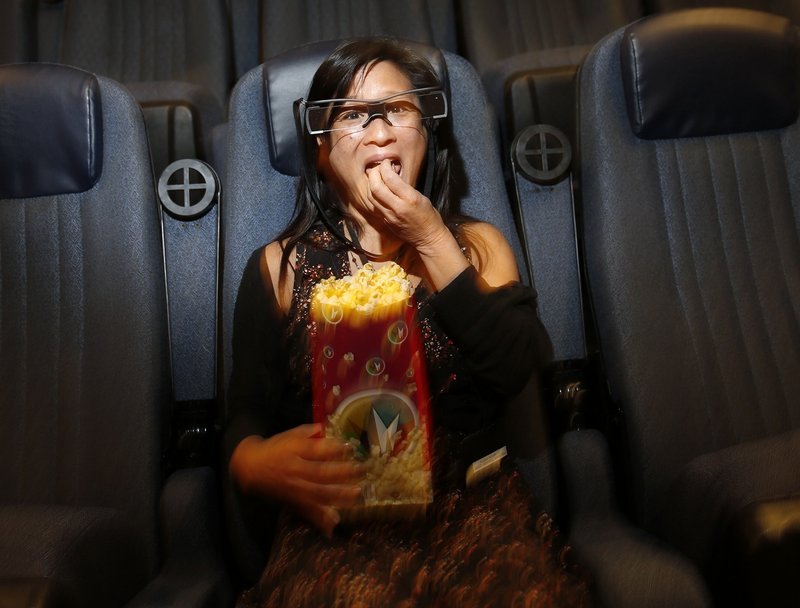Raymond Smith Jr. has been trying for nearly two decades to make the movie industry listen to the needs of the deaf and hard of hearing.
This month, the senior executive at Regal Entertainment Group will come closer to his goal.
His company, the nation’s largest theater chain, will have nearly 6,000 theater screens equipped with closed-captioning glasses that could transform the theatrical experience for millions of deaf and hard-of-hearing patrons who have shunned going to the cinema because previous aids were too clunky or embarrassing to use.
The Knoxville, Tenn., chain has invested more than $10 million in the glasses, which were developed by Sony Electronics Inc. Resembling thick sunglasses, the device uses holographic technology to project closed-caption text that appears inside the lenses, synchronized with the dialogue on the screen.
The system also includes headphones connected to a wireless receiver, with separate audio channels, which play dialogue or allow visually impaired users to listen to a narration track of the film.
For Smith, the investment is the culmination of a personal journey. His son Ryan is deaf. The 23-year-old college student and aspiring screenwriter played an important role in Regal’s decision to order the glasses last year.
“He was our guinea pig,” said Smith, counsel and chief administrative officer for Regal. “Every time a new prototype came out, he gave me immediate feedback.”
Until now, movie options for the deaf and hearing impaired have been limited. Initially, studios released few movies with captions. Exhibitors screened them infrequently, or at odd hours. When cinemas introduced closed-caption devices mounted in seats, many users found them clunky, conspicuous or incompatible with their hearing aids.
The new Sony glasses — which cost theater owners $1,750 (including a receiver and transmitter) but are free to customers — don’t have such problems, advocates say.
“They don’t stand out or make you look different, and people don’t have to dip their heads to look at a screen and miss what’s going on,” said Nanci Linke-Ellis, a partner in Captionfish, a search engine for captioned movies and trailers. “The majority of people I know have not gone to the movies in 35 years because the technology wasn’t available. This is a game changer.”
Send questions/comments to the editors.



Success. Please wait for the page to reload. If the page does not reload within 5 seconds, please refresh the page.
Enter your email and password to access comments.
Hi, to comment on stories you must . This profile is in addition to your subscription and website login.
Already have a commenting profile? .
Invalid username/password.
Please check your email to confirm and complete your registration.
Only subscribers are eligible to post comments. Please subscribe or login first for digital access. Here’s why.
Use the form below to reset your password. When you've submitted your account email, we will send an email with a reset code.